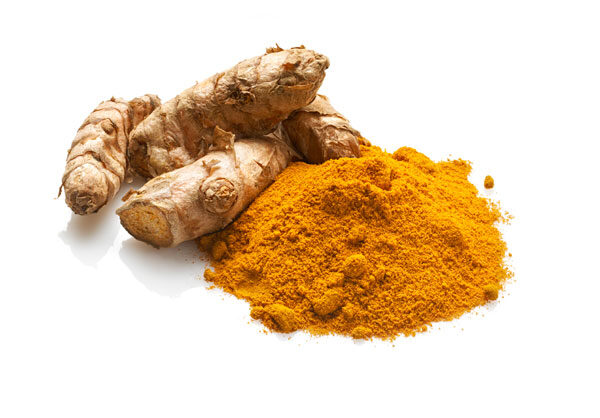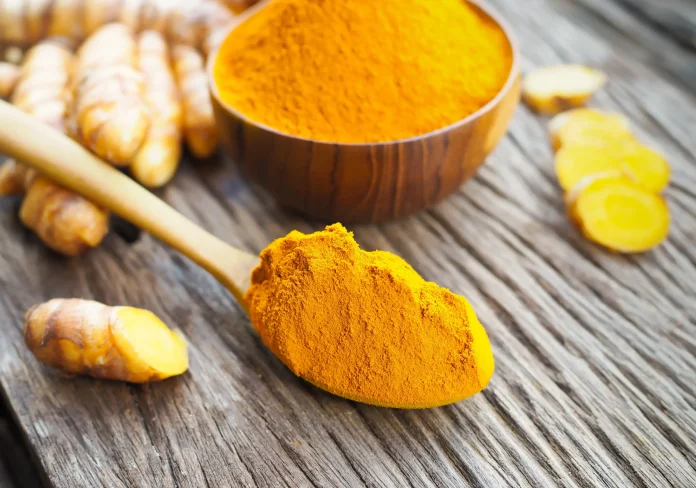Turmeric, often referred to as the “golden spice,” has been celebrated for centuries in traditional medicine, particularly in Ayurveda and Traditional Chinese Medicine. This vibrant yellow-orange root, which is a member of the ginger family, is known not just for its distinct flavor but also for its remarkable health benefits. With its active compound, curcumin, turmeric offers a multitude of advantages that can enhance overall well-being. In this article, we’ll explore the importance of turmeric, its numerous health benefits, and practical ways to incorporate it into your daily diet.
The Nutritional Profile of Turmeric
Turmeric is packed with essential nutrients, including:
- Vitamins: It contains vitamins C, E, and K, which are vital for immune function, skin health, and bone health.
- Minerals: Turmeric provides minerals like iron, potassium, and manganese, which are essential for various bodily functions.
- Antioxidants: The presence of curcumin gives turmeric its potent antioxidant properties, helping to combat oxidative stress and free radical damage.
Key Health Benefits of Turmeric
- Anti-Inflammatory Properties Curcumin is renowned for its ability to reduce inflammation in the body. Chronic inflammation is linked to various health issues, including heart disease, cancer, and autoimmune disorders. Regular consumption of turmeric can help manage and prevent these conditions by blocking inflammatory pathways.
- Rich in Antioxidants Turmeric is a powerful antioxidant, fighting free radicals and reducing oxidative stress. This protection helps lower the risk of chronic diseases and supports cellular health. The antioxidants in turmeric also play a crucial role in combating age-related damage.
- Heart Health Support Turmeric has been shown to improve endothelial function, which is crucial for maintaining blood pressure and regulating blood clotting. Its anti-inflammatory properties also contribute to heart health by reducing cholesterol levels and preventing arterial damage.
- Enhanced Brain Function Curcumin may increase levels of brain-derived neurotrophic factor (BDNF), a protein associated with improved brain function and neuroplasticity. This can lower the risk of neurodegenerative diseases like Alzheimer’s and support cognitive function.
- Joint Health Improvement The anti-inflammatory effects of turmeric make it beneficial for joint health. It can alleviate symptoms of osteoarthritis and rheumatoid arthritis, helping to reduce pain and stiffness.
- Boosted Immune System Turmeric has antimicrobial and antiviral properties, helping to strengthen the immune system. Regular consumption can enhance your body’s ability to fight infections and illnesses, reducing the severity of colds and flu.
- Digestive Aid Turmeric promotes healthy digestion by stimulating bile production in the liver. It can help alleviate symptoms of bloating, gas, and indigestion, making it a great addition to meals for digestive health.
- Weight Management Support Some studies suggest that curcumin may aid in weight management by promoting fat metabolism and preventing fat accumulation. This can be particularly beneficial for those trying to maintain a healthy weight.
- Liver Detoxification Turmeric supports liver health by enhancing detoxification processes and protecting liver cells from damage. This contributes to optimal liver function, which is essential for removing toxins from the body.
- Cancer Prevention Potential Curcumin has shown promise in preventing certain types of cancer by inhibiting the growth of cancer cells and interfering with the spread of tumors. Regular intake may lower the risk of colorectal, breast, and prostate cancers.
- Blood Sugar Regulation Turmeric may help regulate blood sugar levels and improve insulin sensitivity, making it beneficial for individuals with diabetes or those at risk.
- Skin Health Improvement The anti-inflammatory and antioxidant properties of turmeric can improve skin conditions such as acne, eczema, and psoriasis. It may also promote a natural glow and reduce signs of aging.
- Mood Enhancement Curcumin may increase serotonin and dopamine levels in the brain, which can help alleviate symptoms of depression and anxiety, making it a natural mood booster.
- Wound Healing Turmeric’s antiseptic properties can promote faster healing of wounds and reduce the risk of infection, making it useful in first aid applications.
- Support for Healthy Aging The combination of its antioxidant and anti-inflammatory properties helps combat age-related diseases, contributing to a longer and healthier life.

How to Incorporate Turmeric into Your Diet
Incorporating turmeric into your daily diet is simple and delicious. Here are some effective ways to enjoy its benefits:
- Turmeric Tea (Golden Milk)
- Ingredients: 1 cup of milk (dairy or plant-based), 1 teaspoon turmeric powder, 1/4 teaspoon black pepper, honey or sweetener to taste.
- Instructions: Warm the milk in a saucepan. Add turmeric and black pepper, stirring until well combined. Sweeten if desired. Enjoy warm.
- Curries and Stir-fries
- Instructions: Add turmeric powder or fresh turmeric root to your favorite curry or stir-fry recipes. Incorporating turmeric at the beginning of cooking helps release its flavor and health benefits.
- Smoothies
- Recipe: Blend 1 banana, 1 cup spinach, 1/2 teaspoon turmeric, 1/2 teaspoon ginger, and 1 cup almond milk for a nutritious smoothie. Add a pinch of black pepper to enhance curcumin absorption.
- Soups and Stews
- Instructions: Stir turmeric into soups and stews. It pairs well with lentils, beans, and vegetables for a nutritious meal.
- Rice and Grains
- Instructions: Add turmeric to rice or quinoa while cooking. Use about 1/2 teaspoon per cup of dry grains for a vibrant color and flavor.
- Salad Dressings
- Recipe: Mix olive oil, lemon juice, salt, pepper, and 1/2 teaspoon turmeric for a zesty salad dressing. Whisk together and drizzle over salads.
- Homemade Turmeric Paste
- Ingredients: 1/2 cup turmeric powder, 1 cup water, 1/2 teaspoon black pepper.
- Instructions: Cook in a saucepan until a thick paste forms. Store in the fridge and use it in recipes or as a base for drinks.
Tips for Maximizing Absorption
To enhance the absorption of curcumin in turmeric, consider the following:
- Pair with Black Pepper: Adding black pepper can increase the bioavailability of curcumin by up to 2000%.
- Combine with Healthy Fats: Turmeric is fat-soluble, so consuming it with healthy fats (like olive oil or coconut oil) can improve its absorption.
- Cook with Heat: Cooking turmeric can help release its beneficial compounds, making it more effective.
Conclusion
Turmeric is a powerful spice that offers numerous health benefits, making it a valuable addition to any diet. From reducing inflammation and improving heart health to supporting brain function and aiding digestion, the advantages of turmeric are extensive. By incorporating turmeric into your meals in delicious and creative ways, you can harness its potential for enhancing your overall well-being. Whether enjoyed in golden milk, curries, or smoothies, turmeric is not just a spice but a powerhouse of health benefits that can contribute to a healthier lifestyle.
ANTHONY EMEKA NWOSU




